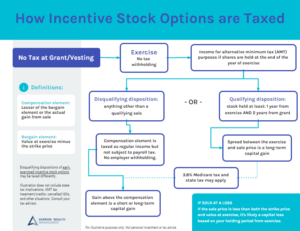Updated for 2024. If you’re receiving an inheritance you may be wondering about how it will be taxed. The tax treatment will ultimately depend on a number of factors, such as the type of inheritance you are receiving (real estate, a retirement account, cash, etc.), your state, the size of the estate, who you inherit it from, and what you do with the assets you inherit. When discussing the tax treatment of an inheritance, keep in mind that some taxes are paid by the estate, while others will be paid by the beneficiary.
How an inheritance will be taxed and who is responsible for paying any tax due will vary.
The Taxable Estate
At a high level, from a federal standpoint, a gross estate includes property (real, investment, or a business) owned by the decedent individually, half of any joint or community property, life insurance, retirement accounts, and assets in a revocable trust. Estate expenses, taxes, debts and other adjustments reduce the gross estate to arrive at an adjusted gross estate. This is further reduced by any charitable gifts at death, assets passing directly to a surviving spouse under the unlimited marital deduction, and other estate planning techniques designed to take advantage of exemptions. What’s left is the taxable estate.
Estate and tax planning is very nuanced so you’ll want to work with an attorney. But for illustrative purposes, it’s helpful to understand how the assets come together as part of the estate.
Federal Estate Tax
Large estates may be subject to federal estate tax to the extent they exceed the exemption. The estate and gift tax exemption is $13.6 million per person in 2024. The current federal estate tax is 40%, so individuals and families should take a careful look at their estate plans to understand their options. The estate pays the tax. But any tax due means there’s less left for beneficiaries.
How is an Inheritance Taxed?
In addition to the federal estate tax, there are other different types of tax that could potentially apply to an inheritance.
State-Imposed Estate Tax
A handful of states impose their own estate tax and exemption amounts. The tax rate is much lower than the federal estate tax, but the exemption amounts are much lower. State estate tax may apply to residents or nonresidents – in the latter case it is usually because the decedent held real estate or other tangible personal property out of state. The estate pays the tax. According to Tax Foundation, 12 states and the District of Columbia have estate taxes and six states have inheritance taxes. Maryland is the only state that has both.
Massachusetts recently doubled its estate tax exemption to $2M.
The Inheritance Tax
Only a few states have an inheritance tax, which is usually paid by the beneficiary: Iowa, Kentucky, Nebraska, Pennsylvania. New Jersey and Maryland have both an estate tax and an inheritance tax. There are exemption amounts which vary by state, and whether a tax is imposed at all may also depend on your relation to the decedent.
Retirement Account Beneficiaries Pay Income Tax on Distributions
When named a beneficiary on a retirement account, distributions from pre-tax inherited retirement accounts will be subject to ordinary income tax. As the direct beneficiary, this income will be included on your personal tax return. This is also true for withdrawals of any gain over the initial investment in non-IRA annuities. If you inherit a Roth IRA, distributions are tax-free if the original account owner met the holding period.
Timing of distributions will depend on whether you inherited a retirement account from a spouse or a parent.
Step Up in Basis for Revocable Trusts (Big Tax Benefit!)
If a beneficiary inherits non-retirement assets such as a brokerage account, home, antiques/art/collectables, real estate, or revocable trust, they can receive a step-up in cost basis. After inheriting these assets, the beneficiary’s cost basis increases to the value at the date of death. If the asset is sold with a gain, the beneficiary will pay capital gains taxes on the difference between the inherited step-up cost basis and the sale price. The holding period for inherited property is always long-term, regardless of when it was purchased by the decedent. A step up in basis doesn’t happen automatically. So particularly after inheriting assets in a revocable trust outright, work with a financial advisor to discuss your situation.
Darrow Wealth Management specializes in helping individuals navigate sudden wealth events, including windfalls from an inheritance or trust fund.
Schedule a Call with an Advisor
The material in this article is for general information only and should not be misconstrued as the rendering of personalized investment, legal, accounting or tax advice. Please consult a tax professional to evaluate the potential impact an inheritance might have on your overall tax situation.
Last reviewed May 2024











